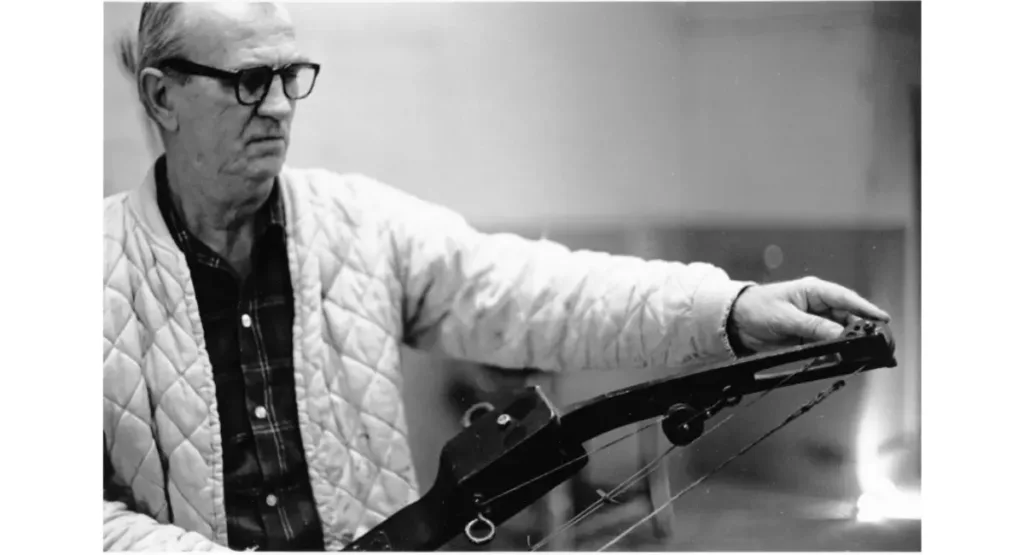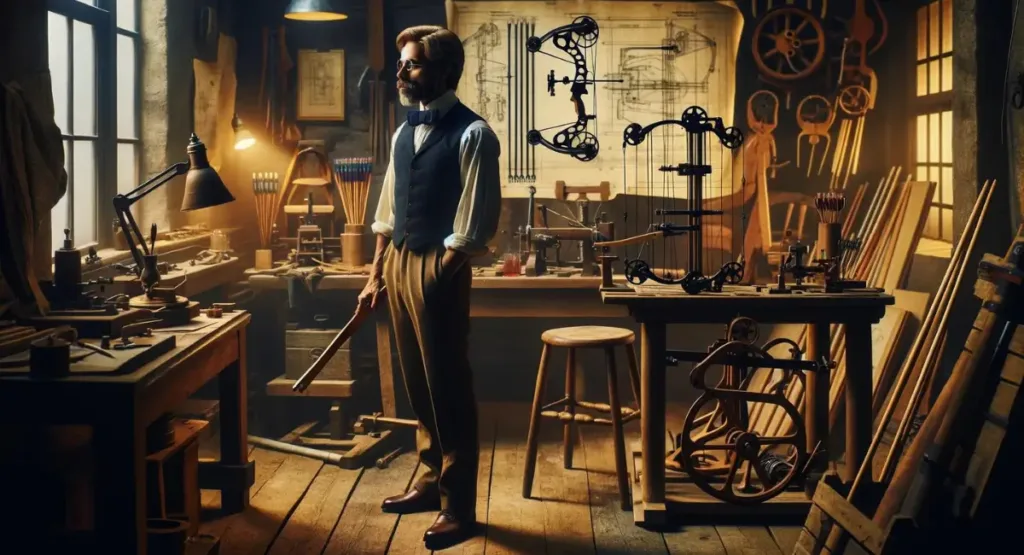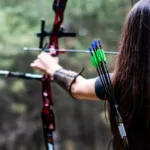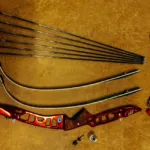There is something timeless as well as powerful about watching the archer draw back the string, eyes focused, muscles taut, just before the arrow flies – a timeless moment that is equally powerful as it is powerful. It is behind this serene picture, however, that a weapon has evolved over hundreds of years. It culminated in the modern marvel known as the compound bow. Who invented the compound bow?
This extensive exploration will trace the history of the bowstring, uncovering the figures and innovations that led to the compound bow invention. Our quest isn’t just a record of inventions, but a narrative of human ingenuity as well. As the name implies, it is the pursuit of faster, more accurate ways to hit the target.
Early archery innovations
Archery is a story of continuous refinement, one arrow at a time. To comprehend the origins of the compound bow, we have to first look back at archery’s ancient origins. Historical sketches date back to the Paleolithic era, when bows were first made of simple curved sticks and strings made from plant fibers. While crude compared to the modern versions, these early iterations laid the foundation for the future.
A variety of civilizations around the world have developed archery equipment, from the Egyptians to the Chinese. With each passing century, they developed more advanced materials and designs. A significant leap forward in power and range was marked by the introduction of composite bows, which combine wood, bone, and horn. Their success led to archery becoming an essential tool for hunting and warfare across the globe.
Compound Bow invention
There were several innovations involved in the transition from composite bows to compound bows, but it was an important turning point in archery history. Several key components converged to create the compound bow, each contributing a vital aspect to its success today.
In 1966, Dr. Holless Wilbur Allen filed one of the first who invented the compound bow. This marked the beginning of the compound bow’s rapid evolution. Even so, it’s worthwhile to keep in mind that the compound bow concept wasn’t invented by a single individual. In fact, multiple engineers worked collectively to improve the ancient weapon.

The Impact of Evolution
A compound bow’s main feature is its pulley system. These cams allow archers to generate more force when drawing, storing that energy for release with a lighter carrying weight. As a result of this technological breakthrough, archery mechanics radically changed, improving accuracy and distance by making it easier to hold and aim.
In traditional archery competitions, compound bows were considered controversial by purists who claimed that their inclusion diluted the sport’s integrity. As a result of its efficiency and consistency, the compound bow continued to gain traction, particularly in professional tournaments and hunting communities.
Furthermore, the compound bow saw significant advancements in arrow technology. Carbon fiber arrows, for instance, improved speed and accuracy, making the bow even more deadly.
Popularity and legacy
A majority of archery enthusiasts consider the compound bow a sporting equipment essential, which is why it is the predominant archery weapon of choice for both sport and practical use. Many archery enthusiasts use it for target shooting, bow hunting, and even bow fishing, praising its precision and versatility.
Today’s archery landscape is shaped by the compound bow. The sporting industry has flourished, and the bow has even appeared in popular media, cementing its place in the world we live in. Compound bows are part of a thriving market that continuously pushes boundaries, as evidenced by their ever-evolving forms and specializations.
Also Read : 6 Mind-Blowing Best Compound Bow For Women
Final Words – Who Invented The compound Bow
Compound bow invention are a testament to human, demonstrating the ability to reimagine and improve even the oldest technologies. By pushing archery to new heights, it has engaged an entire generation of athletes and enthusiasts. Its legacy continues to be written, with each loose arrow carrying forward its legacy.
Invention steps are not a single path, but rather a network of influences, collaborations, and experiments that lead to something truly revolutionary. And for archery enthusiasts as well as history buffs alike, the compound bow invention story serves as a poignant reminder that perfection knows no bounds. When the arrow has left the bow, this persists.
Recent Posts
- The Ultimate Guide To Choosing Between Compound Bow vs Crossbow
- How To Carry A Bow – Tips & Techniques For Archers
- Ultimate Guide To Installing Compound Bow Arrow Rest
- The Ultimate Guide To The Best Archery Brands Of Compound Bows
- How To Utilize Recurve Bow Sights: A Comprehensive Guide
- The Archer’s Craft: Understanding Parts Of Recurve Bow







